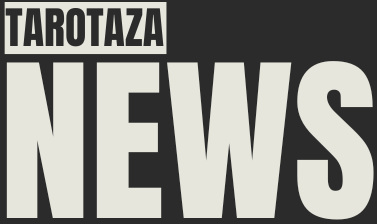
51st State
Table of Contents
Introduction: A Viral Rumor or Political Strategy? 51st State
In December 2024, during a meeting at Mar-a-Lago, President Donald Trump suggested that Canada consider becoming the 51st State of US, a proposal that was initially perceived as a joke by Canadian officials. However, in January 2025, Trump reiterated this idea, stating he would use “economic force” to annex Canada, leading to significant political discourse and public reaction.
Canadian leaders, including Prime Minister Justin Trudeau and Conservative Leader Pierre Poilievre, have strongly opposed the notion, emphasizing Canada’s sovereignty and independence. Trudeau stated there was “not a snowball’s chance in hell” of Canada joining the United Stats’s 51st State.
The proposal has also sparked a surge of national pride among Canadians, with symbolic actions like increased sales of Canadian flags and boycotts of American products. Economists warn that the proposed tariffs could result in higher prices and supply chain disruptions for American consumers.
Historically, discussions about new states have focused on Puerto Rico and Washington, D.C. The last state admitted to the union was Hawaii in 1959.
While the idea of Canada becoming the 51st state has been met with skepticism and resistance, it has ignited discussions about national identity, sovereignty, and international relations between the two nations.

Section 1: Historical Context of U.S.-Canada Relations -51st State
Keyword: U.S. Canada Annexation History
The U.S. and Canada share the world’s longest border, but their relationship has oscillated between alliance and rivalry. From the War of 1812 to modern trade partnerships, annexation debates are not new:
- 1775 & 1812: Failed U.S. invasions to absorb Canada.
- 1867: Canada’s Confederation solidified independence.
- 1988 & 2018: Free Trade Agreements (FTA, USMCA) deepened economic ties.
Section 2: Trump’s Stance on Canada – Trade, NATO, and Beyond – 51st State
While Trump never proposed statehood, his tenure highlighted friction:
- USMCA Negotiations: Trump called Canada’s dairy tariffs a “disgrace” (2018).
- NATO Criticism: Urged Canada to meet 2% GDP defense spending.
- 2020 Remarks: Joked about “building a wall” on the northern border.
https://twitter.com/KatKanada_TM/status/1863736617971879949
Section 3: Legal and Political Hurdles to Statehood – 51st State
For Canada to join the U.S., both nations would face monumental challenges:
- U.S. Constitution: Requires Congressional approval and ratification by 38 states.
- Canadian Sovereignty: Canada’s Parliament and all 10 provinces must agree (per Clarity Act).
- Cultural Identity: Canadians pride themselves on universal healthcare, multiculturalism, and global peacekeeping—values contrasting with U.S. policies.
Section 4: Public Opinion – Would Canadians Say Yes? – 51st State
Polls show minimal Canadian interest in statehood:
- 2022 Angus Reid Survey: 89% oppose joining the U.S.
- Key Concerns: Loss of healthcare, gun laws, and political autonomy.
Meanwhile, American opinions are split:
- Conservative Circles: Some praise resource sharing (e.g., oil, lumber).
- Progressive Pushback: Fears of diluted social programs.
https://twitter.com/StellarianNoah/status/1890997037585371607
Section 5: Economic Implications – Boon or Burden?
Pros:
- Resource Sharing: Alberta’s oil sands + U.S. refineries.
- Streamlined Trade: Eliminate tariffs under single governance.
Cons:
- Currency Shift: Transition from CAD to USD could destabilize markets.
- Tax Systems: Canada’s higher taxes vs. U.S. model.
Section 6: Cultural Clash or Harmony? – 51st State
Healthcare: Canada’s universal system vs. privatized U.S. care.
- Gun Laws: Strict Canadian regulations vs. 2nd Amendment rights.
- National Pride: Maple Leaf vs. Stars and Stripes.
Section 7: Expert Reactions – Political Analysts Weigh In
Keyword: Canada Statehood Expert Opinions
- Dr. Laura Dawson (Economist): “A merger would require decades of negotiation, with no guarantee of success.”
- Former PM Stephen Harper: “Canada’s sovereignty is non-negotiable.”
https://twitter.com/David_Moscrop/status/1890151423884816557
Section 8: The Satire Behind the Headlines
The rumor likely stems from:
- Misinterpreted Humor: Satirical sites like The Beaverton poking fun at Trump’s expansionist rhetoric.
- Viral TikTok Takes: Gen Z users humorously debating “Canuck statehood.”
Conclusion: Why the Idea Captivates—And Why It Won’t Happen
While merging nations makes for provocative headlines, reality is far more complex. Canada’s national identity, legal barriers, and lack of political will on both sides make statehood implausible. Yet, the hypothetical debate reveals deeper themes: nationalism, globalization, and the enduring power of diplomacy.
FAQ Section
Q: Has Trump ever seriously suggested annexing Canada?
A: No—this idea stems from satire and historical “what-ifs.”
Q: What would Canada gain as the 51st state?
A: Hypothetically, economic integration, but at the cost of sovereignty.
Q: How do Canadians view the U.S.?
A: Polls show admiration for U.S. innovation but pride in Canadian values.
Call to Action
What do YOU think? Could Canada and the U.S. ever unite? Share your thoughts below!






1 thought on “51st State: Could Canada Be Next? Unveiling Trump’s Hypothetical Proposal and Its Shocking Implications”